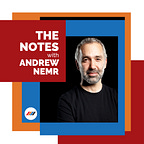I really believe that there exists, somewhere deep within every person, a line which they refuse to cross. There is a part of their being that they refuse to give up. Other parts may move around. Everyone, they say, has a price. They may be willing to change some things in exchange for others. But once it gets to this line, way deep down, there is no negotiation, no possibility of compromise, no moving.
I see much of life as movement – not in the physical or geographical senses, but in a positional one. We move from one position in life to another. As our positions move our perspectives shift. A great image of this is Peter Boghossian’s Street Epystemologies. We may sense changes in our relationships as we move from one position to another. Ever felt less or more favor from a friend over time? We may be the ones changing how we relate to others. Ever be the one to favor a friend less or more over time? Moves like these happen all the time and can be initiated in a multitude of ways. In fact, if we take this view of life, we might consider our idea of movement to be fundamental to our navigation of life.
Movement is a thing I’ve considered ever since I began to take tap dancing seriously. Tap dance is a convergent craft in that it deals with movement and sound with equal importance. Watch a tap dancer who hasn’t considered their movement style and you may be left wanting more. Listen to a tap dancer who hasn’t considered what sounds they are making, and your experience will be lesser for it. In the back rooms that hosted post-show hangs, the conversation of which is more important, movement or sound, is the tap dance equivalent of the chicken and egg debate.
The tap dance debate is more easily solvable. Without movement there can be no sound. Without movement there can be no action. Without movement there can be no affect. Without movement there can be no discovery, growth, or change. Without movement nothing happens.
This is not to advocate that everything about us should be ever changing. Rather to acknowledge that we are always moving, in some way. In this mode, it is really important to discover how to hold steadfastly to the ideas and people we deem to be important. These ideas and people literally undergird our lives. For example, someone who believes that relationships among family members are important will organize their lives in such a way to have time and space for those relationships. Alternatively, someone who believes that their contribution at their job is important will organize their lives in such a way to have time and space for that. Of course, there may be an interaction between such beliefs, and that interaction often comes with moments of choosing one way of organizing over the other. We can’t move in all directions, everywhere, all the time.
What we hold onto and how we hold on to it is exceptionally important in a world that is consistently presenting different ways to live. We can see some of these propositions with a quick visit to any social media site, book store, or community bulletin board. Every post, book, or flyer is a proposition of a particular kind of life. The social media influencer proposes, “This is what you should do if you want to look like me.” The author says, “Buy this book to understand why everyone is anxious.” The flyer on the bulletin board invites, “Learn guitar!” These are just some of what we are invited into. In a world inundated with these kinds of propositions there is work to be done in articulating the propositions of life we hold as our own.
What is a proposition of life?
A few weeks ago, I facilitated a one-day retreat on spiritual formation and rest. The day centered around the following proposition:
Take My yoke upon you and learn from Me, for I am gentle and lowly in heart, and you will find rest for your souls.
If someone said to you, do this and you will have this, that is a proposition of life. Here Jesus Christ is recorded as saying, “Take my yoke upon you and learn from Me…and you will find rest for your souls.” In the same basic pretense, others might say, “Make your bed in the morning, and you will find motivation in your soul.” In these examples we see two parts to each proposition. There is the thing that we are to do and the thing that is to come out of the doing. In these kinds of practices it is good to note that the doing and what we get are not directly related. That is, taking a yoke upon oneself is more directly related to work than rest, and making one’s bed is more directly related to tidiness than motivation.
Being Immovable
Years ago, I was walking on Santa Monica Boulevard when a gentleman in an orange robe approached me and asked if I wanted to know the secret to a happy life. I kindly declined. He asked, “Why not?” I replied, “I already know the secret to a happy life.” He looked at me confused. I shared a little about my experience of God’s love through Jesus Christ, and following a short exchange, we went our separate ways.
Most propositions of life are presented in ways to try to make you move to their position. The kind gentleman had a plan behind his question for me. The practices learned and used to garner our attention, and eventually our time and resources, are there not just to present a proposition, but to make us to move towards it. The question he asked, even his presence in a place where his traditional dress would stand out, were meant to draw attention, inspire curiosity, lead to engagement, and finally a move on my part – towards him.
One way to navigate such a world of constant propositioning is to become resistant to any proposition. I could have run away, saying something like, “No, I’m busy, I have no time for the secret to happiness.” This is functionally fear-based. I run away because I’m afraid I’ll be convinced. I don’t want the slyness of the person making the proposition to catch me. But we can only run away for so long. Another way is to mine the things that we organize our lives around – perhaps our own current answers to the four great questions of life. With these in hand, we can know ourselves enough to engage in conversation – the type that leads to deeper discovery. We can trust ourselves to move thoughtfully when drawn, while being less prone to the kind of tactics designed to move us.
Being secure in the things that we won’t move from is exceptionally important. Being willing to move towards things that would be beneficial to our lives is also a good disposition to have. Learning to navigate what we will and won’t move for is a huge part of the journey.











